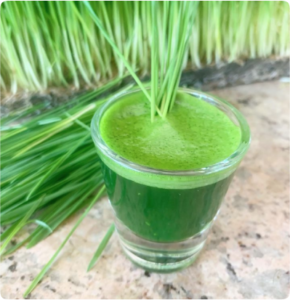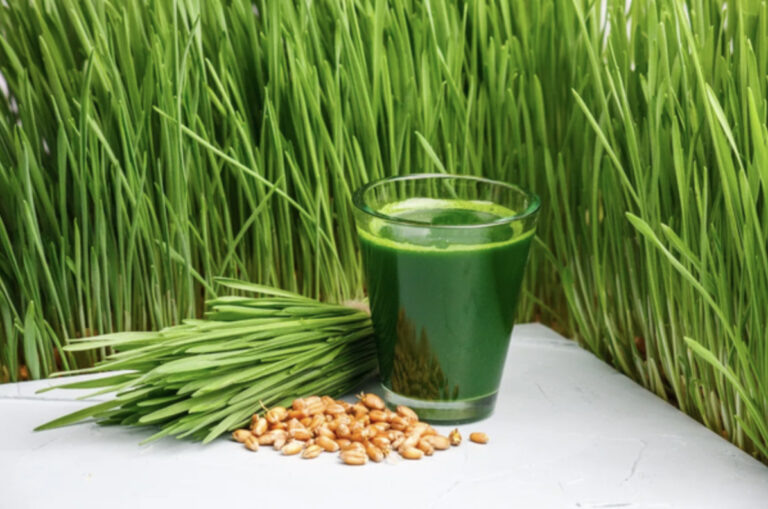
The Power of Enzymes: How Wheatgrass, Microgreens & Living Foods Are Changing the Game
You know when you learn something so fascinating that you can’t not share it? That’s exactly how I feel about enzymes. I’ve always known food

Yes! Ulcerative colitis, a prevalent form of inflammatory bowel disease, presents painful ulcers and inflammation in the colon and rectum, often resulting in bloody diarrhea and discomfort. While traditional treatment options for ulcerative colitis include steroids, anti-inflammatory drugs, and in severe cases, surgery, the role of wheatgrass juice as a complementary therapy cannot be overlooked. Here are specific components of wheatgrass that contribute to its potential in managing ulcerative colitis:
A consistent therapeutic dose of wheatgrass is imperative when managing colitis. You can get wheatgrass juice shots at your local juice bar or juice it yourself at home.
Wheatgrass specialists Perfects Foods Inc. have been growing wheatgrass in upstate New York since 1982. They ship wheatgrass and microgreens throughout the US and offer a DIY raw vegan ‘Reset Cleanse’ with a supportive virtual community. If you are going to juice wheatgrass at home you will need a masticating wheatgrass juicer. A budget-friendly option would be to grow wheatgrass yourself at home.
Wheatgrass juice is most effective when freshly juiced or frozen. Processed powders and pills don’t retain all of the live enzymes that are necessary for combatting illnesses such as colitis.
-Yours Truly
Rachel Matsil – Wellness Specialist at Perfect Foods

You know when you learn something so fascinating that you can’t not share it? That’s exactly how I feel about enzymes. I’ve always known food

Webinar Replay: Key Take Away Make Frozen Wheatgrass Juice At Your Juice Bar Ask Us For Promo Material Now “Perfect Foods has

Time to clear out the doody in the booty!! Colonics are a method which introduces water into the rectum with a small
Hours:
Mon-Thu: 8am-3pm
Fri: 8am-2pm
Sat-Sun: Closed